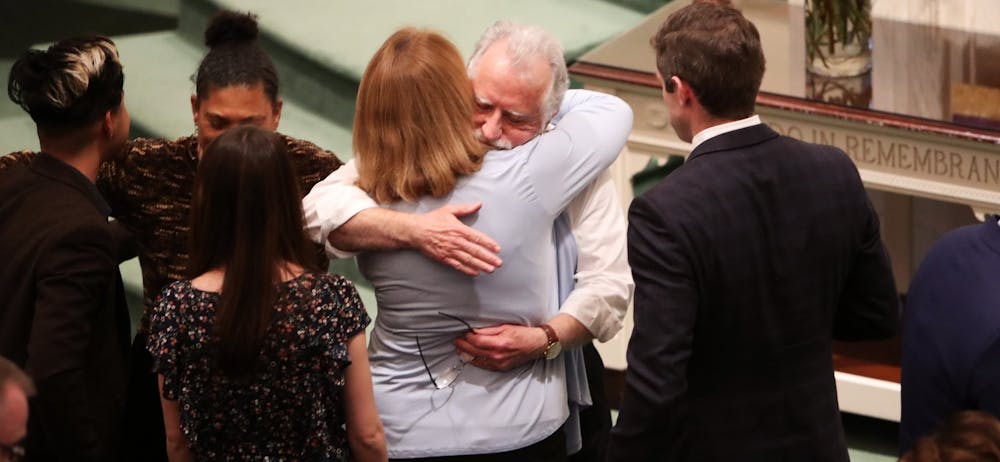After more than 30 years of service at University Baptist Church, Mitchell Simpson stepped into the pulpit earlier this month to preach his final sermon as senior pastor.
The sanctuary was full with sunlight, music, Carolina Blue and hundreds of the people Simpson has led over his lengthy tenure. But Simpson said what lay inside the church was not how he wanted his ministry to be remembered.
“The church should exist for those who are not in it,” Simpson said. “The church should not exist to be worried about buildings, or funding, or how to dress or looking for ways to shut you out.”
During his tenure, Simpson has helped facilitate new programs, including visiting prisoners, welcoming individuals from Chinese and refugee populations into the church’s facilities and most recently, partnering with University United Methodist Church and UNC’s Music department to expand a Musical Empowerment program.
From prison cells to piccolos, Simpson said although the church’s outward focus is biblically-based, its ministry is unique in an increasingly materialistic culture.
“Instead of following Jesus, we said, ‘We really admire him, so let’s create a sort of admiration society, let’s build buildings and let’s sing hymns about how wonderful he is,'” Simpson said. “It’s a pretty total misunderstanding of what Jesus asked us to do.”
Simpson said his understanding of the Bible has shaped his church’s focus on community engagement.
“Jesus said, ‘I want you to take care of the poor, I want you to take care of people who are in prison, I want you to care about people who are powerless,'” Simpson said. “It’s very clear that’s what Jesus had in mind.”
A bulletin board laden with heartfelt, handwritten letters from prisoners at FCI Butner Low, the low-security federal correctional institution in eastern North Carolina that church members regularly visit, is displayed next to the church office’s entrance. Simpson said the prison ministry’s base in love rather than conversion brings unique light to the prisoners.




